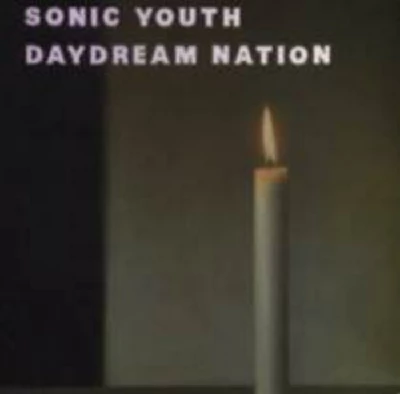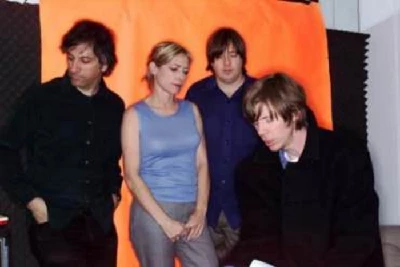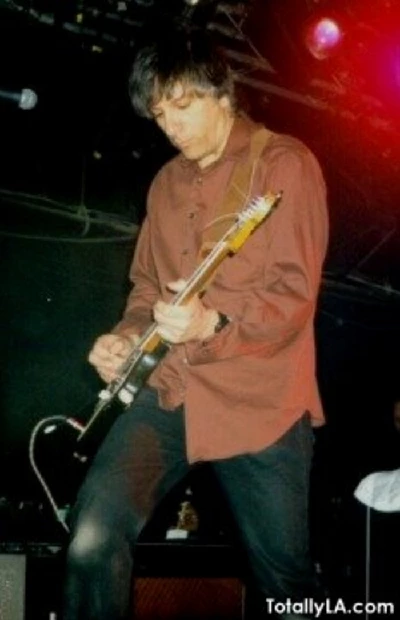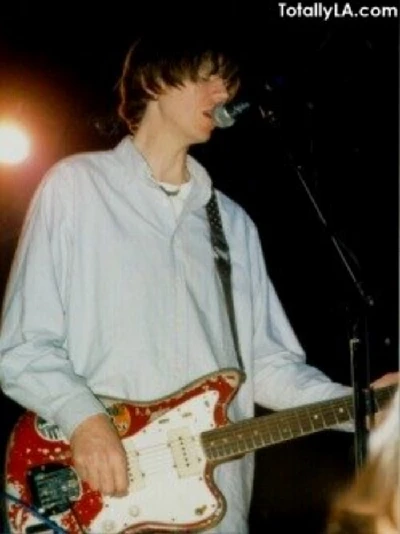published: 11 /
5 /
2002

In the latest in our Favourite Album series, in which one of our writers writes about an album of his or her choice, Andy Snowball looks at Sonic Youth's classic 1988 album , 'Daydream Nation'
Article
Over the band’s 20-year lifespan, Sonic Youth’s continued experimentation and the massive variation in influences that they’ve applied to their records has regularly either frustrated or delighted their listeners.
From their earliest, most abrasive releases up until the band’s quieter recent records, and with various low-key projects on the side, they have always appeared to be a number of different bands at once. That they now release their albums on different labels depending on its commercial viability does seem rather at odd with their regular proclamations to be "just a rock band".
But 1988’s 'Daydream Nation' signalled an incredible period for the Sonic Youth, as the multi-faceted noodling momentarily gave way to a damn-near perfectly formed record that matched the band’s experimental approach with punk and still managed to give us a listenable, fun, brilliant record.
'Daydream Nation' marked a transitional period for the band as the last record before their move to major label Geffen. It juxtaposes the band’s defining features, such as their use of alternate tunings and their layered, structured songs with a commercial outlook. Unlike 'Goo', their debut for Geffen, it is still provocative though, with extended wig-out sections and and a kind of fearlessness from not having major label pressures. The record is a beguiling mixture of the flippant and throwaway – such as Thurston Moore’s slacker lyrics on 'Teen Age Riot '– and the deadly seriousness which the band have always used so effectively on their music. It contains the spirit of the very best records, filled with the fire of great rock ‘n’ roll that lifts a very few records above the rest.
'Teen Age Riot' sets up Daydream Nation’s momentum as the haunting opening chords make way for a killer riff and adolescent battlecry lyrics. 'Silver Rocket' is high speed, dissonant punk before the listener is given a chance to catch their breath as the clatter of 'The Sprawl' fades out to a long, improvised ending.
‘Cross The Breeze' captures many of the album’s features in one go as the grinding punk intro steps aside as a massive hook pulls you in to Kim Gordon’s half shout, half growl delivery.
Lee Ranaldo almost made' Daydream Nation' his own with his contributions. On 'Hey Joni' guitars dance around vocals, which questions what went wrong with people’s dreams in the 60’s: “Hey Joni, when will all the dreams come true?” he asks, with a passionate, almost desperate, zeal. The tension in 'Eric’s Trip' winds up like a spring, before being released in a ferocious sonic blur.
Towards the end of the album the band get a bit noisier and return to the lo-fi dynamics of its predecessors, as if to regain the attention of any listeners they may have lost. The bleak 'Rain King' is followed by Kim’s best snarl on 'Kissability' before the album closes with the sprawling trilogy, whose parts alternate between obnoxious punk, low, brooding noise and back to punk for the finale.
The album’s lowest point – the disappointingly normal and lifeless 'Total Trash' – serves to highlight how special 'Daydream Nation' is by having a regular rock song in amongst an astonishing collection, showing just how removed Sonic Youth usually are and were from the rest of rock’s prosaic posers.
Bands flagging in the wake of the art rock veterans, too afraid to utilise Sonic Youth’s scholarly approach to modern music, are still copying 'Daydream Nation' today. But for all its musical merits and art rock points scored, it remains, above all else, simply a great rock ‘n’ roll record
Track Listing:-
Band Links:-
http://sonicyouth.com/
https://www.facebook.com/sonicyouth/
https://twitter.com/thesonicyouth
Picture Gallery:-



